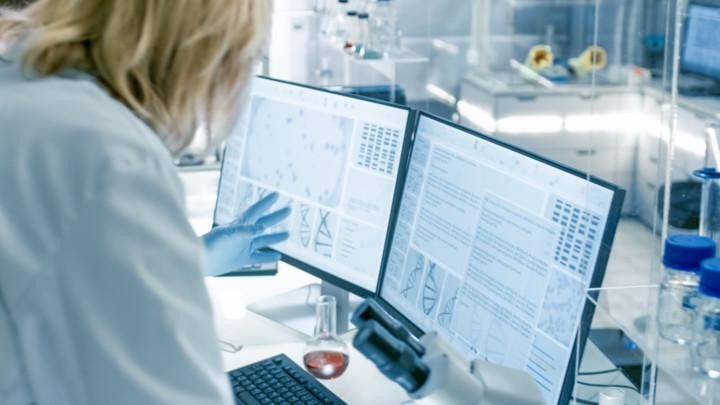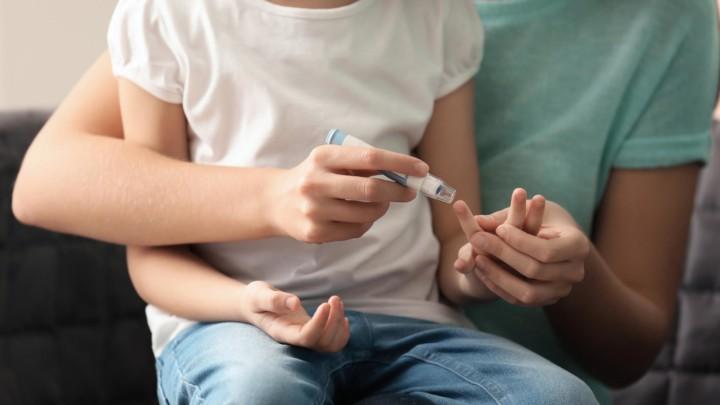
The iCAN research team is producing new information and seeking solutions to the globally growing emergence of cancers. The research team uses research data to look for new connections between gene changes in cancer tumours and the behaviour of healthy tissue. “The research also aims to improve patient care. The more we know about genes, the better we can carry over information to care practices”, says Kirsi Talonen, project lawyer at the University of Helsinki.
iCAN is a Finnish RDI flagship project that is now entering its second four-year period. Launching this project, jointly implemented by the University of Helsinki and the Hospital District of Helsinki and Uusimaa (HUS), has been a major effort.
The large joint project has pioneered the way in many respects. It is an extensive biobank study that currently involves two biobanks, the Helsinki Biobank and the Finnish Hematology Registry and Clinical Biobank (FHRB). In the study, researchers conduct a thorough molecular profiling on the cancer samples provided by the biobank and then look for new connections between the results and each person’s health data.
Individual treatment for patients through genome data
Cancer is a rapidly growing national disease. For this reason, there is an effort to find solutions through research. According to Talonen, the Finnish lifetime health registers and the Cancer Register in particular offer especially good preconditions for cancer research in Finland. The iCAN project examines the connections between molecular changes and other health data and attempts to find new correlations and factors that would explain the formation and spread of cancer. The aim is to identify new care targets and create opportunities for individualised care.
Cancer research has long been at the forefront of using genetic and molecular data in the development of new diagnostics and treatment. iCAN research goes deep into the cancer tumour by investigating the gene changes associated with cancer as well as the changes in the manifestations of genes. In addition, the research looks into how the immune system and normal tissues surrounding cancer react at the individual level.
“This kind examination is still expensive, and it is not a part of routine diagnostics yet. The more we learn about the interactions between cancers and healthy tissue, the better we understand the mechanisms of how cancer develops. iCAN is not limited to collecting data within just one type of cancer, as it aims to find common behavioural features across different types of cancer”, Talonen describes.
Gene and molecular profiling make it possible to give patients individualised cancer treatments.
“Our research also aims to offer tools for targeting treatments better”, Talonen explains.
“In addition to knowing the permit process, drafting the application required good substance competence. Our researchers and the rest of our group made a significant contribution to the application process. Before submitting the application, we had discussions with the controllers on the necessary materials to ensure that the lists of the required data were defined as clearly as possible.”
– Kirsi Talonen, Legal Counsel, University of Helsinki, iCAN
Communication and exchange of information ensure an easy application process
The data extraction for the research project was preceded by lengthy and careful preparation, requiring time and patience from the researchers and the entire project working group. They had to dive deep into existing information and the contents of the data catalogue included in the Act on the Secondary Use of Health and Social Data. Talonen explains that the aim was to do the background work as well as possible. She had previous experience with permit processes, which was beneficial in preparing the application.
“In addition to being familiar with the permit process, preparing the application required substantive medical competence and knowledge of authorities’ registers. So our researchers and everyone at iCAN made a significant contribution to the application process. Before submitting the application, we communicated with the controllers on the data available and its variables so that the variables concerning the data could be defined as precisely as possible”, Talonen explains.
After submitting the application, the processing of the permit went well. This success was thanks to active communication with Findata both in advance and during the processing.
“Findata has responded to our questions actively and quickly and given us preliminary information. Findata’s position as a coordinating party is challenging because there are so many different controllers. The fact that we had talked to all controllers in advance helped us with the permit application. Our interaction with Findata was fortunately very easy throughout the process. We got answers to all our questions and the people at Findata were active in communicating with us.”
Surprising turns are the soul of scientific research
The application process was partly complicated by the high level of detail required of the data to be retrieved. Talonen explains that one challenge was that the data has to be retrieved by each variable.
“For research, you would have to know in advance exactly what you need. Although we had some experienced researchers doing this work, it took time. The nature of a project like iCAN is to open-mindedly look for new connections, so it is very challenging to know or anticipate in detail which data you need. As the research process goes on, your needs can also change, depending on your findings and observations. Mapping existing data requires a certain kind of expertise, and the tools, such as the data catalogue, are not something everyone is familiar with”, Talonen says.
According to Talonen, the nature of research is that findings are made in the middle of the process, creating a need for new types of data. If the permit does not cover this new data, researchers have to submit an amendment application and wait for it to be processed.
“For the future, it’s maybe worth considering how precise you have to be when defining the data to be retrieved. At the moment, you have to define it at the variable level. Could the definition be on a more general level? Although the controllers were helpful with the applications, having to give a detailed description of all the data you want retrieved in advance is not really in line with the nature of scientific research. Surprising turns are the soul of scientific research, and discoveries happen by chance!” Talonen states.
“Another challenge is created by changes in the research group and the change application process it requires. In big projects where research teams can be made up of over a hundred people, it is common for there to be some changes. All changes to the research group have to be reported to Findata as amendment applications. This means that a researcher joining the research group may have to wait several weeks or months for access to the research data. These changes also cost money. Maybe it could be possible for an organisation that has been granted a data permit to be responsible for its research group members and that Findata would only get updates on group member changes?” Talonen ponders.
Answers to new research questions from data
After patience-testing permit processes and sample collection arrangements, it is great to see the project in full swing and undergoing development. iCAN is continuing to seek new partners so that the study can include as many patients as possible.
In addition, the project aims to expand in Finland by initiating cooperation with regional cancer centres. Additional funding was granted to the second phase of the project to this end. Over the summer and autumn, the iCAN research team has considered new research questions that could only be answered by the data collected in the project. Their implementation is about to start at the turn of the year.
Researcher’s tips for data permit applicants
“If you do not use register data regularly, you should ask for advice from an experienced colleague. Really invest in determining the accuracy of your data. It is also a good idea to tell the controller about your needs and ask how much it will approximately cost to retrieve the data. If everything else in the data permit has been done well, it is unfortunate if you have to cancel because of the cost.”
– Kirsi Talonen, Legal Counsel, University of Helsinki, iCAN
What is Findata?
- Launched in 2020, Findata is the data permit authority for the social and health care sector. Findata’s work is based on the Act on the Secondary Use of Health and Social Data, which entered into force in 2019.
- Among other things, Findata grants data permits for scientific research, statistics and official reporting duties. In addition to granting permits, it combines and pre-processes the data.
- Findata’s aim is to improve the information security of data sets containing health and social data and to enable the more efficient use of these sets.
- Findata operates in conjunction with the Finnish Institute for Health and Welfare but separately from the Institute’s other activities.
This article is part of the Datasta tutkimukseen (From data to research) article series published by Findata that sheds light on Findata’s activities and the changes brought about by the Act on the Secondary Use of Health and Social Data. In the series, we showcase studies that utilise data available through Findata.


